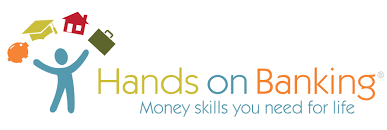Introduction:
Financial literacy is a critical skill that empowers individuals to make sound financial decisions, build wealth, and attain financial freedom. Unfortunately, it’s often overlooked in traditional education systems. Hands-On Banking Financial Education Lessons strive to bridge this gap by providing practical, engaging, and easy-to-understand financial lessons for people of all ages.
In this article, we will delve into the benefits of Hands-On Banking Financial Education Lessons, explore their content areas, and provide insights on how they can significantly improve one’s financial skills and knowledge.
Benefits of Hands-On Banking Financial Education Lessons:
1. Enhancing financial literacy: The lessons help to promote a better understanding of basic financial concepts such as budgeting, saving, investing, credit management, and understanding interest rates.
2. Building positive money habits: The interactive lessons encourage participants to adopt responsible money habits that promote long-term financial success.
3. Customized programs for different age groups: Hands-On Banking lessons cater to everyone – from children (aged 5+) to adults. This ensures that people receive age-appropriate financial guidance and education tailored to their needs.
4. Accessible and easy-to-follow modules: The program uses interactive multimedia tools such as videos, games, and worksheets in simple language that makes learning about personal finance both fun and informative.
Content Areas of Hands-On Banking Financial Education Lessons:
1. Budgeting – The foundation of strong financial management is learning how to create a realistic budget focused on achieving your goals while living within your means. Hands-On Banking teaches the basics of budgeting – from tracking expenses to identifying wants vs needs.
2. Saving – Understanding the significance of saving money is essential for managing emergencies and achieving long-term dreams. The lessons focus on creating savings plans, setting short-term and long-term goals, and strategies for reaching those goals more efficiently.
3. Investing – With education covering various investment vehicles such as stocks, bonds, and real estate, individuals can harness the power of compounding returns. The program educates participants on the benefits, risks, and strategies associated with investing.
4. Credit – Managing credit responsibly requires careful consideration of the costs and benefits of using credit. Hands-On Banking lessons examine the different types of credit, best practices for managing it, and guidance on building a strong credit history.
5. Retirement Planning – Planning for retirement is crucial for financial wellbeing later in life. Participants will learn how to set retirement goals and explore various savings vehicles to build a secure financial future.
Conclusion:
Financial independence begins with a solid understanding of personal finance concepts. Hands-On Banking Financial Education Lessons provide a comprehensive learning experience designed to empower individuals with the knowledge and skills necessary to achieve financial success. By incorporating these interactive lessons into your life, you can cultivate healthy financial habits, optimize decision-making processes, and create a more stable and secure future for yourself and loved ones.





